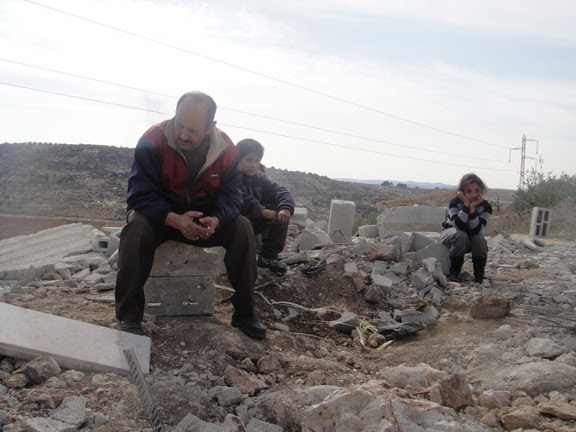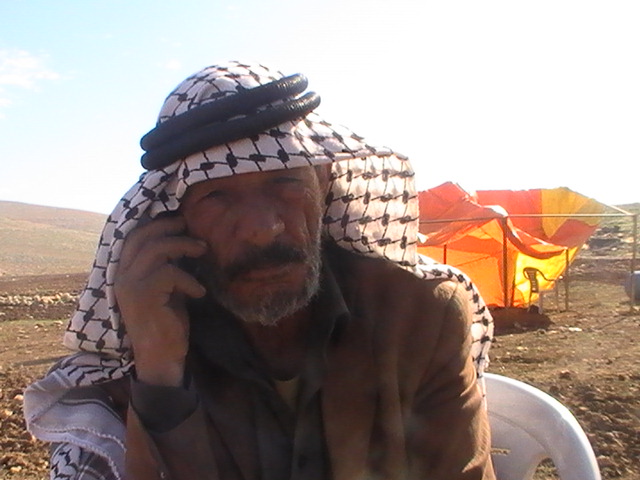Tag: House Demolition
-
Khan Al-Ahmar: Forced expulsion of Bedouins from Area C
by Alistair George 13 December 2011 | International Solidarity Movement, West Bank “From the 1970’s until today, the Israelis used to demolish our tents and houses but not to deport us” says Abu Hamis, a member of the Jahalin Bedouin tribe . “We used to rebuild our places but the new policy which they are…
-
Idna family charged by Israeli military for “demolition services”
10 December 2011 | International Solidarity Movement, West Bank Over two weeks have passed since the El Gelwe family’s home was demolished. They remain homeless and are currently living in a tent which was provided by Palestinian neighbors in the village of Idna, of the Hebron Governorate. The family’s tent is erected just meters away from…
-
Jordan Valley: threat of imminent demolition hangs over the village of Al Hadidiya
by Ben Lorber 7 December 2011 | International Solidarity Movement, West Bank Before the 1967 Israeli occupation of the West Bank, Al Hadidiya, near the Jordan Valley villages of Tubas and Jiftlik, was inhabited by over 100 families. Today, only 14 families remain. Since 1967, the village has been demolished four times, and over 3000 dunums…


